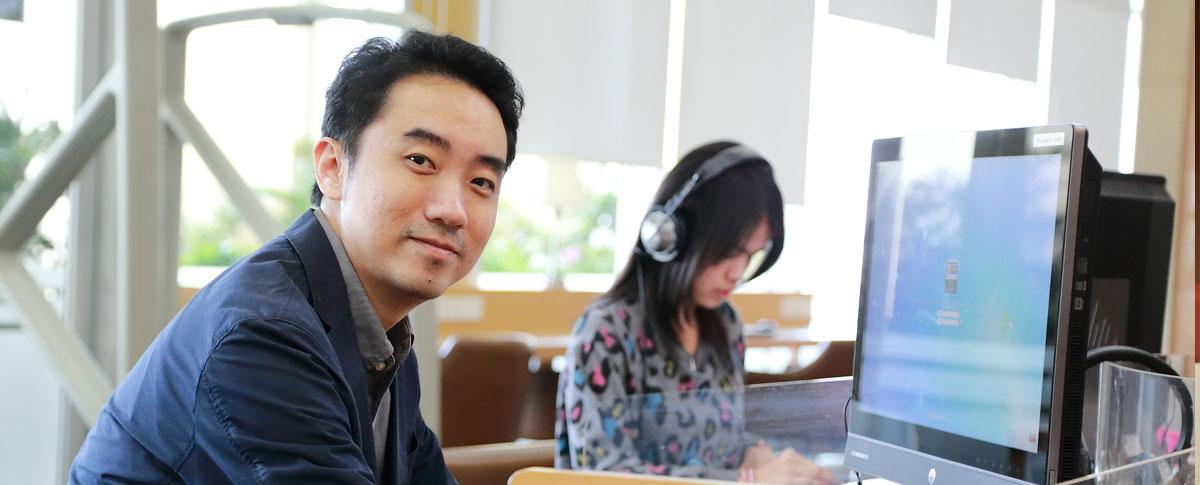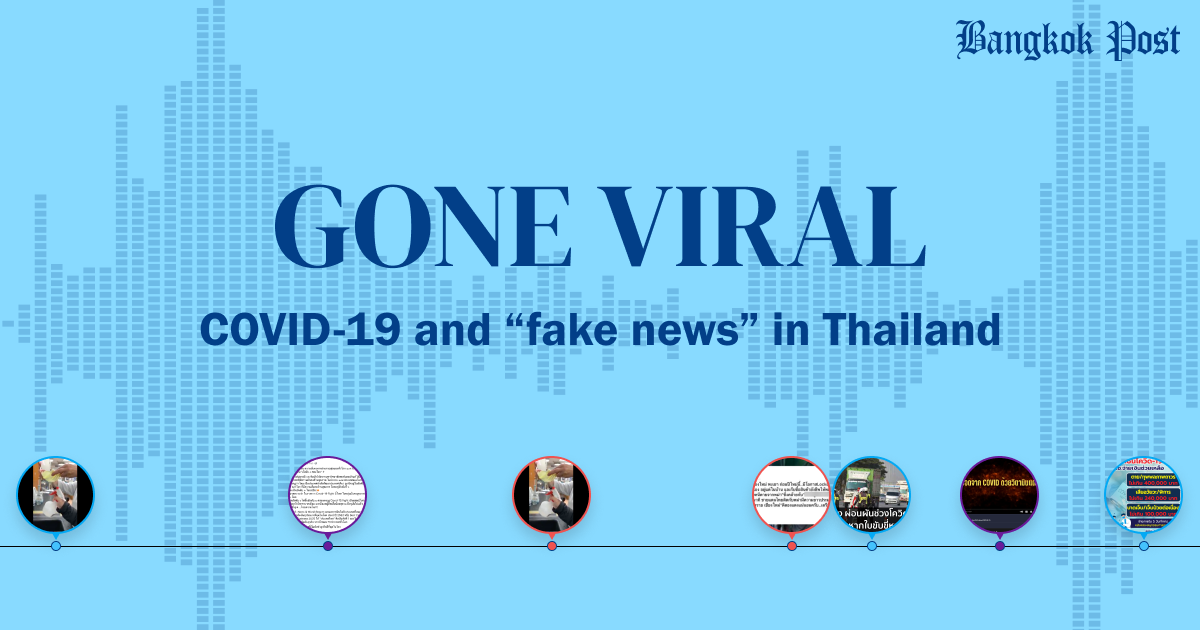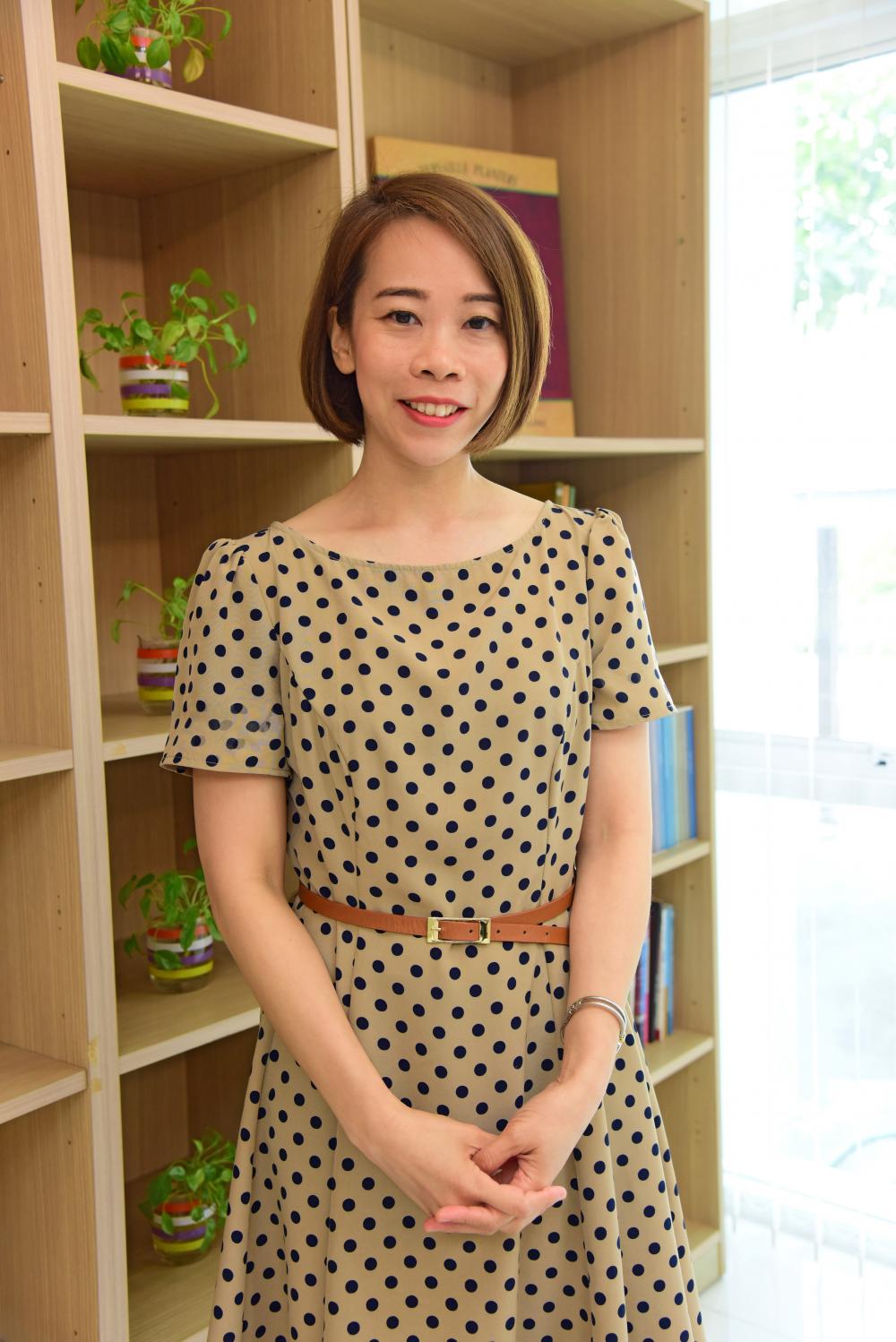The government needs to be faster and be more precise in dealing with fake news, especially fake news concerning Covid-19, said the Minister for Digital Economy and Society, Chaiwut Thanakamanusorn.
Considering the amount of information on the disease which is circulating online and on social media, the minister said the pandemic is as much a public health threat as it is an information issue.
Given how reliant Thais are on the internet and social media for information -- the average Thai spends about nine hours a day on the internet, and almost 80% of the country is on social media -- tackling misinformation and false claims is almost impossible.
To support the effort, the Bangkok Post is launching a new data visualisation project, called "Gone Viral: Covid-19 and Fake News in Thailand".
The project is supported by a grant from the Thai Media Fund and produced in partnership with Wisesight, Punch Up and Salforest.
Research into the "infodemic" -- an overabundance of information during the pandemic -- and its economic and social impact revealed there were more than 18 million messages sent which were linked to Covid-19 between Jan 1 last year and June 15, meaning about 34,600 messages were sent each day.

Asst Prof Warat Karuchit, chairman of the subcommittee to promote innovation for the development of safe and creative media at the Thai Media Fund. The Bangkok Post and the Thai Media Fund has launched a data visualisation project called 'Gone Viral: Covid-19 and Fake News in Thailand' to explore the socioeconomic impact of fake news during the Covid-19 infodemic.
The messages and/or posts received 2.8 billion engagements, averaging at 63 times per second, it found.
"Information, especially fake news, travels at such a rapid speed, and it tends to build up as it goes along. Once it impresses viewers, it is difficult to correct," Mr Chaiwut said, adding the DES Ministry has to work harder to ensure the truth can catch up with fake news online.
"We are trying to improve our operation. We have to be faster in providing the correct information, block misinformation and prosecute those who intentionally release falsehoods," Mr Chaiwut said.
The minister said that as fake news is mainly spread on international platforms such as Facebook, Twitter and YouTube, the DES Ministry hasn't been entirely successful in its bid to deter misinformation online.
He said the ministry is concerned about new media outlets, some of which are portraying themselves as news portals, which tend to sensationalise, if not outright distort the truth for the sake of publicity.
"The rising influence of these outlets is disturbing as people tend to believe them at first glance," Mr Chaiwut said.
Asst Prof Phansasiri Kularb from Chulalongkorn University's Faculty of Communication Arts believes that fact-checkers, along with mass media and social media platform companies, are the key to enlightening the public.

The data visualisation project analyses "fake news" as flagged by fact checkers in the country and shows its impact on the economy and society.
"It is crucial that these key players adhere to international standards and follow a principled approach in verifying information. They must be quick and transparent to earn the public's trust," she said.
For the "Gone Viral" project, Asst Prof Phansasiri sifted through 1,922 messages flagged by four fact-checkers in the country -- the Anti-Fake News Centre, Cofact, AFP Fact Check and Sure And Share Centre -- over the three waves of Covid-19 outbreaks that hit the country over the past year.

Phansasiri: A varied threat
She classified them according to the topic (virus transmission, situation reports or government policies), the nature of hoax (false information, wrong context or manipulated content), origin (news stories, social media posts or video clips) and reference (government agencies, experts or online influencers).
She found fact-checkers have a different understanding of what constitutes a "hoax". The AFNC, for example, labelled 68% of the flagged messages as "false" while AFP Fact Check labelled only 34%.
During the first wave of the pandemic, most of the false messages were related to Covid-19 situation updates.
As the outbreak progressed, false messages about the government's policies and measures began to increase, which Asst Prof Phansasiri's study linked to confusion about the government's changing Covid control measures and restrictions, which prompted many people to share information indiscriminately.
A closer look into the content of the messages labelled as "fake" revealed many were sent with a good intention, as a warning to other people.
The analysis found only a small number of "fake" messages contained exaggerated claims intended for financial gains.
Asst Prof Warat Karuchit, associate dean for planning and development at Nida and chairman of the subcommittee to promote innovation for the development of safe and creative media at Thai Media Fund, said that in any communication crisis, fake news can be anticipated.
"The saying that fake news can kill is not an overstatement," Asst Prof Warat said.
"There were people, not only in Thailand but around the world who refused to get vaccinated when they were offered because they had been fed false information. Regrettably, many of the vaccine deniers were infected and became seriously ill or died."
But of course, the impact of fake news goes beyond fatalities. False information wreaks havoc on the economy and society in various ways by eroding social cohesion and moral stability.
"One thing which I personally think is as serious as death is the compromise on truth. It's unimaginable how will we live in a world where we cannot be sure of anything we see and hear, or things we have always believed to be true," Asst Prof Warat said.
As a member of the communication team at the Centre for Covid-19 Situation Administration (CCSA), Mr Warat believes the country needs at least three things -- a good communication plan, adherence to truth and transparency and helpful communication tools -- to cope with the Covid-19 infodemic.
"From my experience, I think Thailand has some components in place but certain things need to be added or improved," Asst Prof Warat said.
In the end, we may have to learn to live with "fake news" just like we do with Covid-19, he said.
"With a high enough rate of vaccination, the virus can still spread but it will be controllable. This could be our approach to fake news, to get people 'vaccinated' against it." he said. "The 'vaccines' could be education, constant monitoring and fact-checking. Super-correctors, policies or laws could be developed to slow down the spread of fake news.''
He warned, however, that these developments will take time. At the moment, the best advice against fake news is to remain vigilant and double check any information we receive.
Patchar Duangklad, business director and co-founder of Punch Up, which took care of the project's design and development, said the web-based data storytelling approach best illustrates the complex problem.
"Turning data into visuals gives people an insight into other dimensions of fake news, such as how contents are dispersed at certain periods of time and how the seemingly monolithic fake news could be classified by different fact checkers,'' Ms Patchar said.